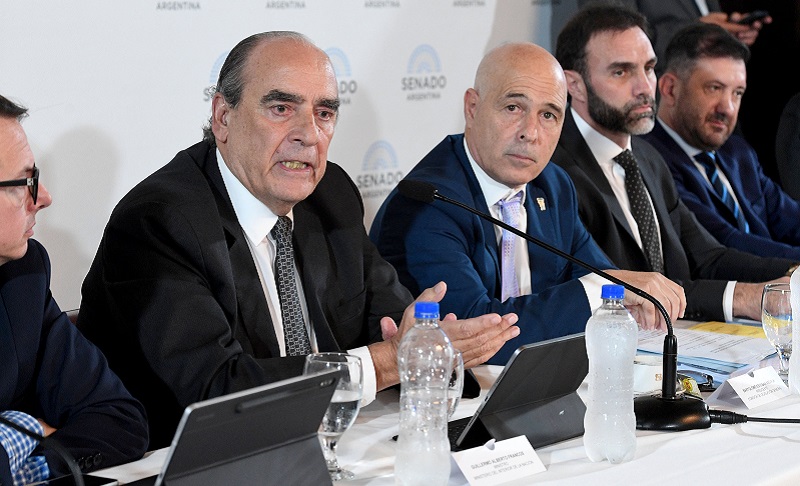
This Tuesday the treatment of the Base Law and the tax package promoted by President Javier Milei. A project that does not have no benefits for the working class, which includes tax reductions for the richest and big businessmen, rewards for escapees, the increase in the monotax and the elimination of the social monotax. Workers who slightly exceed the poverty line will also have to pay Income Tax on their salary.
Government wants to discuss the project in committee for three days to try to rule this Thursday the 9th, coinciding with the national strike called by the CGT. Then the ruling party wants to complete the treatment of both proposals on May 16, with the objective that both laws are approved before the May Pact (the 25th of that month), proposed by Milei to the governors. The ruling party accelerates negotiations with the opposition to achieve its approval.
However, that perspective was questioned during Tuesday’s commission. Since senators from the different forces, both Unión por la Patria and legislators from the UCR, requested to extend the discussion in the plenary session of commissions, both by invitations to various actors, such as the leaders of the union centers, and by the discussion of some articles of the package such as the RIGI, which generates controversies even among PRO senators as was the case of Guadalupe Tagliaferri.
The debate began in a plenary session of the General Legislation commissions; Constitutional Matters; and Budget and Treasury. The Minister of the Interior, Guillermo Francos, the Deputy Chief of Staff, José Rolandi, attended the Congress to defend the norm; the Secretary of Planning, María Ibarzábal Murphy. The debate will continue this Wednesday from ten in the morning.
In the debate, deputies from Unión por la Patria denounced irregular changes in the project that reached the upper house and from the ruling party they justified it as “a typing error that has been the responsibility of the Chamber of Deputies” and then two ” errata”.
Meanwhile, FRancos defended the Executive’s projects and justified the anti-worker project by pointing out that “the country had paralyzed production due to the stoppage of imports and uncontrolled inflation. In this situation, which the previous government solved with issuance, emergency measures had to be taken. Among them, those that were presented to the National Congress, the Bases Law and DNU 70″.
The Deputy Chief of Staff, José Rolandi, defended the RIGI (Large Investment Incentive Regime) that benefits large companies and stated that the objective is to “promote large investments that are long-term projects, where the income during the 3 years does not exceed the 30% threshold with respect to the investment amounts of that project.” The Executive seeks to give it important tax benefits , customs and foreign exchange to large capitals to try to attract them. The main benefit proposed is a reduction in Income Tax for investments that exceed US$200 million. The regime seems aimed (although not only) at. attract mining companies to plunder the country’s natural commons. For this reason there was a break in the Unión por la Patria bloc in the lower house, where deputies from Catamarca and San Juan – both mining provinces – voted in favor of this tax award to large multinationals.
For its part, María Ibarzábal Murphy, head of Strategic Planningdetailed the articles that refer to the reform of the State and stated that public administration “cannot be governed by operations from the last century.” The official defends a return to privatization and an attack on the stability of public employment. After lay off more than 10,000 contract workersthe Government intends to advance with this project on the positions of thousands of permanent workers, under a criterion of reconversion of the functions of the State.
As was already seen during the discussion in the Chamber of Deputies, nothing good for the majorities can be expected from the legislators of the traditional parties. These days negotiations between the different blocks with the ruling party are growing. The outlook is even and there are around a dozen “undecided”.
That is why the strike on May 9 has to be forceful so that the workers and popular sectors are in better conditions to continue the fighting measures. The CGT, the CTA and all the unions have to call for a new general strike and mobilization on the day of the vote on the Bases and Fiscal Law in the Senate.
Source: www.laizquierdadiario.com

